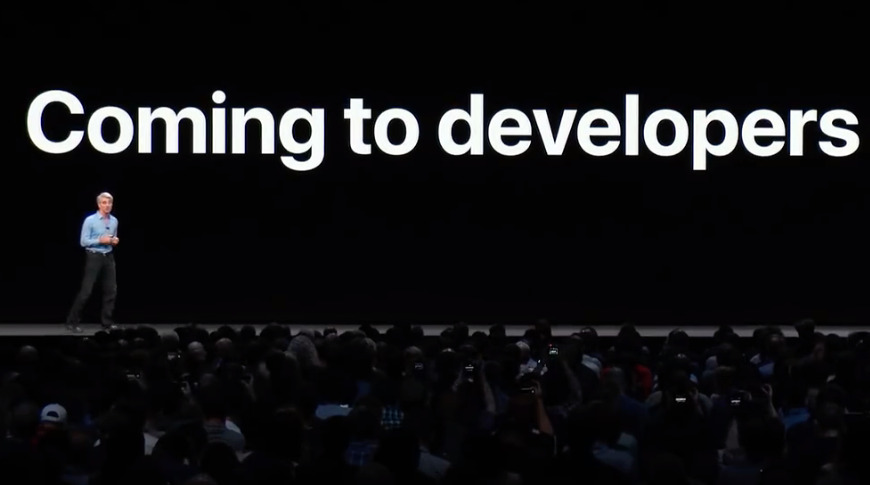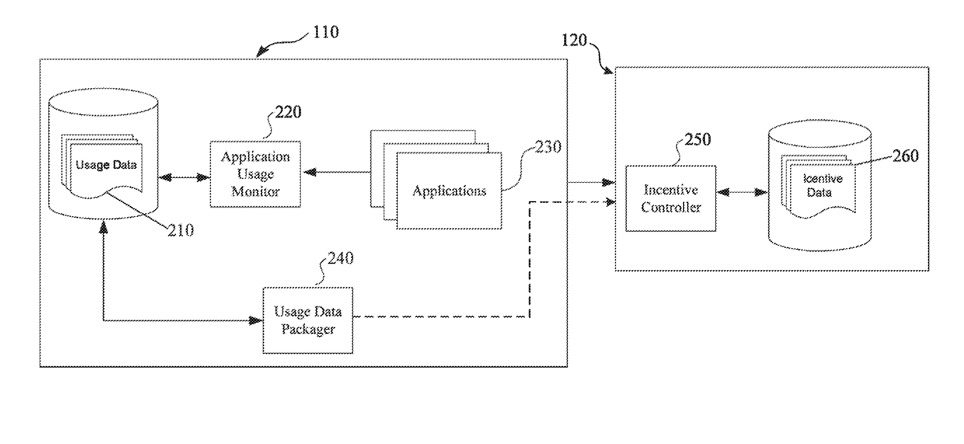Apple has investigated methods of determining which apps get certain amounts of actual use by the user, and then allocating financial rewards to the developers based on that usage.
Even as Apple begins heavily promoting the Apple Developer Program, developers should not get too excited by a newly-revealed patent application about paying them incentives. Nowhere in the 9,000 words of the application does Apple definitely say it will pay money to App Store developers, nor come close to suggesting how much.
Rather, the patent application, "Usage-based allocation of an incentive pool," goes into careful detail over what could earn incentives, if there were any. "The present description generally relates to providing incentives to developers to develop applications," it says, "including allocating incentives of an incentive pool to developers based on the usage of the applications they developed."
Clearly, if a user subscribes to use an app, that's a positive thing. If they then actually use the app, that's something more — and especially so if they use it a lot. Add in them using the same app across multiple devices, and you could be a shoo-in for some incentive cash.
The ultimate aim is to reward those developers who create apps which users rely on. The more such apps there are, the more people use them, the more they will use Apple devices.
This patent application is not specifically concerned with how a developer gets a user to keep using their app. However, the aim is to engender "1) meaningful engagement with an application (e.g., a game), 2) utilizing the application on multiple device families, and 3) healthy stickiness where non-addictive types of user behavior are encouraged."
Beyond that, the patent application is entirely focused on the mechanics of determining when any given developer would earn an incentive, and then how much that incentive would be.
It manages to do all of this without once mentioning money because instead it centers on the idea of there being a "fixed incentive pool." Someone, presumably Apple, sets up that pool, and then follows a mixture of thorough and tortuous rules to determine who gets what share of it.
Apple says the pool might be set up for a year, though clearly just as an example. It then says the job entails "determining the set of values corresponding to respective allocation amounts for the first and second subsets of the set of applications."
This business of first and second subsets of an application is to do with the situation where you're running the separate iPhone and iPad versions of the "same" app. Then there are issues around exactly how long you use it for, and then whether that time increases.
"The threshold for each qualified usage event over the Y period of time may be set by a server and provided to the user devices that use the applications developed by the developers," says Apple. "For example, a qualified usage event may be a certain amount of time of engagement with an application, such as one minute, 10 minutes, 30 minutes, one hour, or any amount of time."
"[Each] developer may be limited to a fixed number of qualified usage events over the Y period of time for each unique user," it continues. "For example, each developer may be limited to one qualified usage event per unique user over the Y period of time. In this manner, developers may receive allocations from the portion of the fixed incentive pool over the given Y period of time based on qualified usage with their application(s)."
So based on users passing certain usage "thresholds" — presumably set by Apple — and doing so in certain ways over certain times, developers could get paid.
Again, there's no detail of cash rewards, nor of where that money will come from, other than there being an unspecified amount in a fixed pool. The patent application does, though, get in to how that pool would be divided.
It's possible that this is being used for Apple Arcade developers right now. However, any attempts that we have made for the last year to discuss compensation has been rebuffed by the developers.
The patent application is credited to four inventors, only one of whom appears to have prior patents or patent applications. Dana J. Dubois has previously been credited on a patent to do with making buying recommendations to users.
 William Gallagher
William Gallagher








-m.jpg)






 Charles Martin
Charles Martin
 Christine McKee
Christine McKee
 Wesley Hilliard
Wesley Hilliard
 Malcolm Owen
Malcolm Owen
 Andrew Orr
Andrew Orr

 Sponsored Content
Sponsored Content








6 Comments
Let’s also look at the opposite approach: ‘Free’ apps that are used a lot but don’t pay any ‘rent’ because they use off-site payment mechanisms. Why should developers who can’t afford off platform payment systems be put at a competitive disadvantage to the, now rich, incumbents?
Why should Spotify practically exist on the app store for free? Bill those fuckers.
That's patent worthy? OMG.... patent progress at work. Perhaps this will end up in the not-granted pile.
Interesting and well intentioned, but you always have to be wary that someone is inevitably going to figure out a way to game the incentive system in their own favor.
I like the motivation behind the application and would like to see similar thought processes applied to finding ways to evaluate the efficacy of AI and ML systems based on observation of user behaviors in a way that is not intrusive. For example, if you make a query to Siri or select one of the offered choices in a predictive list, have a feedback mechanism to grade the quality of the Siri response or prediction lists. The prediction list cases would be very easy to capture based on user selection, but knowing whether Siri actually provided a useful response is more challenging without asking the user. Users would quickly tire of these micro surveys and simply reduce their use of the capability. I suppose they could key in on cuss words that immediately follow Siri responses, or the agitated tone and increased volume of the user’s follow-up query.
I always thought Apple should give a higher revenue percentage to exclusive apps. Like 80% instead of 70. Apple taking a smaller cut for exclusivity. I think many developers would stick with Apple exclusively.
Of course you'd want dear Google to have the ability to steal from Apple again. Not enough they stole the entire App Store from Apple.